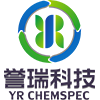Skin care: Vitamin C and its derivatives
Vitamin C is a commonly used ingredient in cosmetics and a natural antioxidant that can be used to prevent and improve the quality of skin damage caused by sunlight; It is worth noting that although most animals and plants can synthesize vitamin C on their own, the human body cannot synthesize it on its own and can only obtain it from exogenous foods. Taking vitamin C orally only limits the increase in vitamin C content in the skin. Therefore, topical skincare products containing vitamin C are the best way to supplement skin vitamin C.
Vitamin C and its derivatives
The main vitamins used in cosmetics include vitamin C, magnesium phosphate, and palmitate. Vitamin C is very unstable, and the efficiency of skin absorption is low. The simple use is usually combined with vitamin E, and the use amount is generally 1%~20% in cream preparations. As a derivative of vitamin C, in cosmetics and lotion, magnesium ascorbate phosphate is the most stable, followed by ascorbate palmitate.
Now research has proved that vitamin C has anti-inflammatory effect and is usually used by dermatology to treat a variety of inflammatory skin diseases; Although vitamin C is not stable and its skin absorption is not as good as that of magnesium phosphate, vitamin C has the best effect on the skin! In the experiment, applying a cream with a pH value of 3.2 and a concentration of 15% vitamin C daily for three consecutive days can increase the content of vitamin C in the skin by 20 times, and the effective effect can last for 4 days. However, applying 13% magnesium phosphate of vitamin C and 10% palmitate of vitamin C cannot effectively increase the concentration of vitamin C in the skin. In cosmetics, vitamin C and its derivatives are usually used in combination.
Some clinical studies have shown that containing 15% vitamin C palmitate can effectively reduce erythema caused by UV and UVB. If applied after UV damage, the rate of redness reduction can be increased by 50%. Therefore, vitamin C palmitate is recommended for use in sunscreen and post sun repair products; Vitamin C phosphate magnesium can maintain stability in neutral pH values and has the function of clearing free radicals and stimulating collagen production. Therefore, in anti-aging and antioxidant products, it is advisable to use vitamin C in combination with vitamin C phosphate magnesium.
Post time: Apr-10-2023



